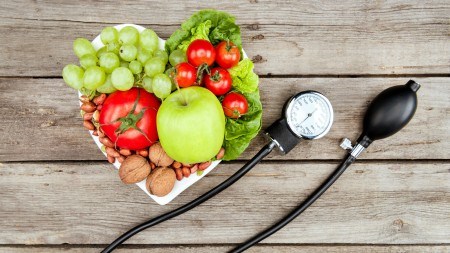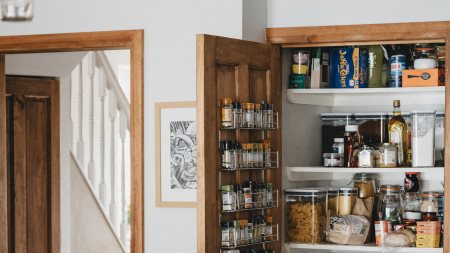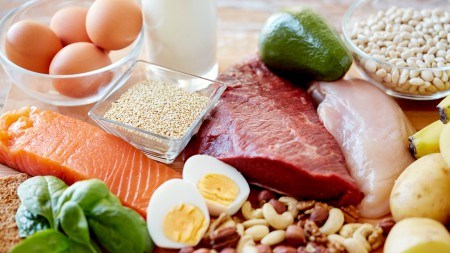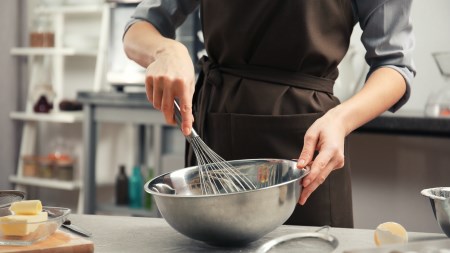Annoyed by food going off too quickly? Cut food waste and save money with these storage tips to make your food last longer.
There’s nothing more irritating that reaching for something in the fridge only to find it’s gone off. Fresh food stuffs obviously have a limited shelf life, but there are ways of storing them in such a way that they stay fresher for longer.
Buy local
It's important to remember the fresher the produce, the longer the shelf life. Try to buy local, in-season fruit and veg as much as possible. Buy limited quantities of imported or out of season produce to avoid wastage.
Avoid gas
Foods that produce ethylene gas will cause other produce to ripen faster and should be stored separately. Fruit that omit ethylene include bananas, melons, mangoes, pears, plums and tomatoes. Foods that are particularly sensitive to ethylene include green beans, broccoli, carrots and cucumbers.
Here are some storage tips to help your food last longer:
Apples
Cover with a damp towel and store in a cardboard box in the fridge. Eat bruised or damaged fruit first to prevent the other produce from rotting.
Bananas
Don't keep bananas in a mixed fruit bowl, store separately. Wrapping the ‘crown’ of a bunch of bananas will help keep them fresher for longer.
Berries
Extend the shelf life of your berries dramatically by giving them a bath in a mixture of one part vinegar to ten parts water. Drain, rinse and put them in the fridge.
Citrus fruit
Don't store citrus fruit in an airtight container. Either store in an open container or leave the fruit loose in the fridge.
Grapes
Do not wash grapes before storing. Remove any rotten fruit and store in an airtight container.
Onions and garlic
Don't store these versatile vegetables in the fridge. They will last for months if you place them inside a pair of panty hose, tying a knot between each item before hanging them.
Herbs
Remove fresh herbs such as coriander, chives and parsley from their plastic wrappers and store in vase-like containers half filled with water. Cover with a plastic bag and secure with an elastic band and refrigerate. Herbs such as rosemary and thyme should not be refrigerated, but hung in a cool, dry area of the kitchen.
Potatoes
Should be stored outside the fridge in a brown paper bag. Extend the shelf life of potatoes by placing a single apple in the bag.
Mushrooms
Remove from packaging and store in a brown paper bag in the fridge to prevent them from going slimy.
Carrots
Cut off the tops to keep them fresher for longer. Either store in a container of water or in an airtight container in the fridge.
Cucumbers
The best way to store cucumbers is by standing them upright in a container of water in the fridge.
Cauliflower
Although cauli doesn't keep well, you can extend its shelf life by removing it from its packaging and storing in an airtight container in the fridge.
Broccoli
Remove from packaging and store in an open container in the fridge.
Green beans
Do not wash before storing. Keep in the fridge.
Corn
Don't remove the outer leaves and store in the fridge. Remember, corn should be eaten quickly as this vegetable will lose its flavour fairly quickly.
Salad greens
Store in an airtight container with a damp paper towel. To stop a ready-made salad from going limp, place a dry paper towel over the top before sealing with cling wrap.
Tomatoes
Ripe tomatoes shouldn't be kept in the fridge, but should be unwrapped and stored at room temperature on the kitchen counter.
Cheese
Wrap cheese in wax paper or a paper bag and place in a plastic bag. Smear a little butter on the cut side of the cheese to keep it from drying out. Store the cheese in the warmest part of the fridge. Grate and freeze if you have a surplus.
Bonus tip:
Don’t store items such as cream, milk and butter in the fridge door. This is generally the warmest part of the fridge and this could make the products spoil faster.





